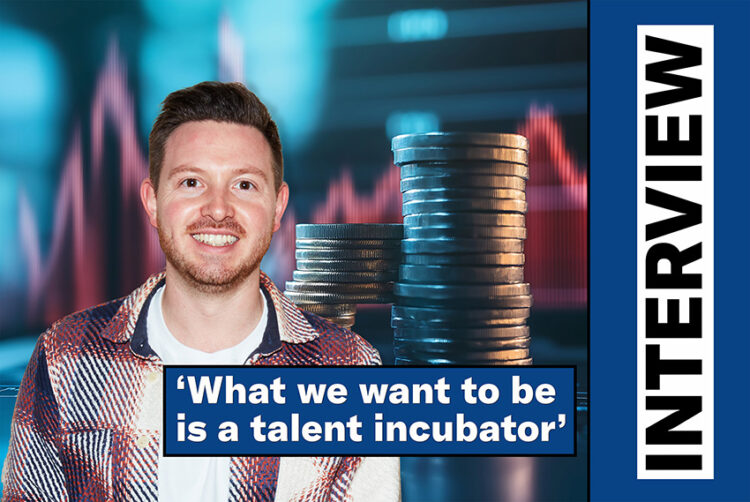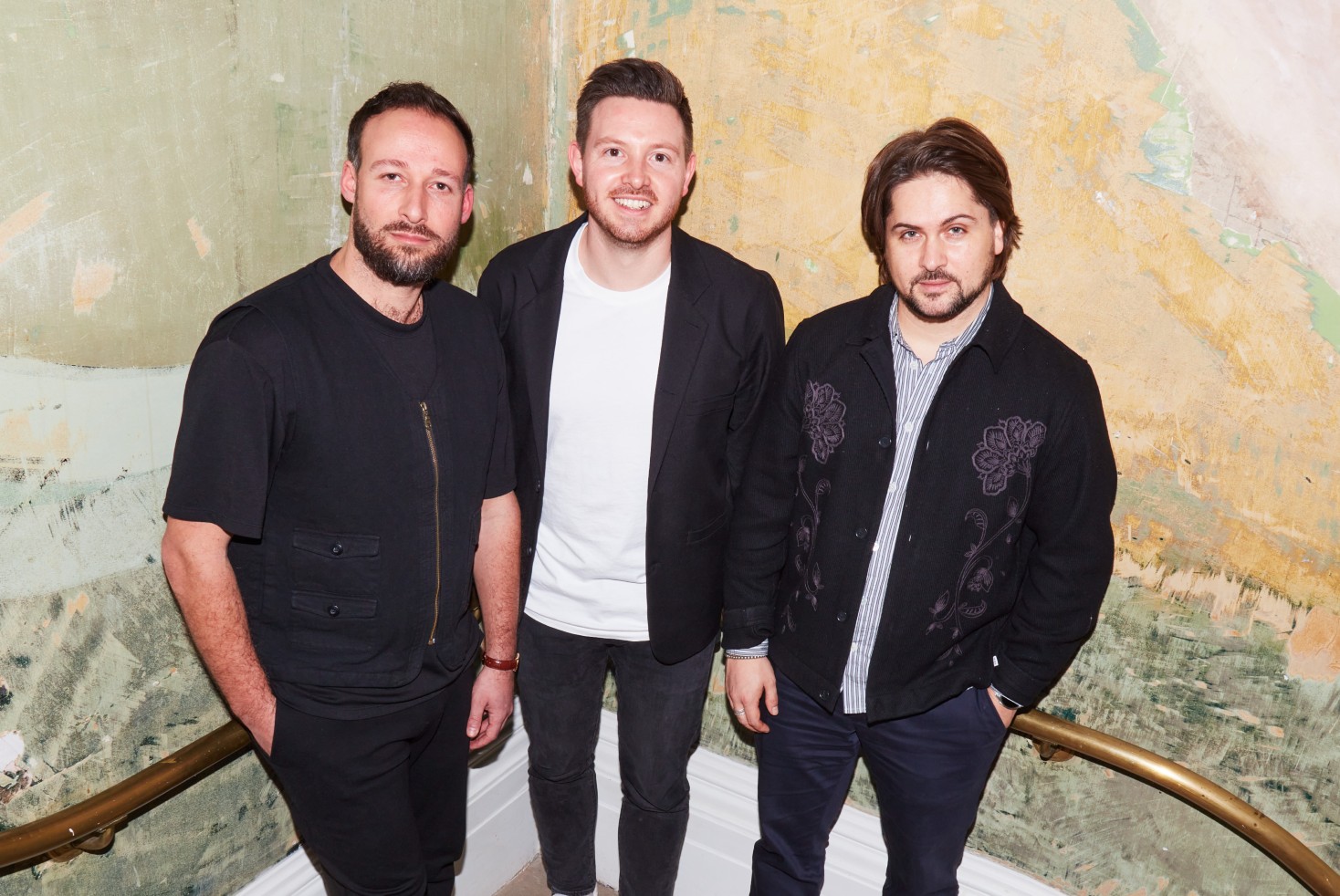Why MNC is kicking off an acquisition drive by buying a VC fund

The Media Leader Interview
CEO Luke Bristow thinks the acquisition gives the agency a unique proposition to attract clients and top talent by putting ‘our money where our mouth is’.
“Putting your money into a business is probably the purest way of saying: ‘We believe in you, we back your business and we’re going to be on this journey with you for the long term.'”
Last week, independent media agency MNC acquired Grwth, a consumer brand venture capital (VC) fund and consultancy, in a “multimillion-pound deal”.
A media agency buying a VC fund is basically unheard of in Europe. But Luke Bristow, MNC’s CEO, tells The Media Leader that the model makes sense for his agency, both as a form of business diversification as well as through giving MNC more “skin in the game” with clients.
The combined group, which retains the MNC name, averages over £50m in annual billings. The VC fund will be looking to “actively deploy capital” targeting scale-up brands — the same types of clients that MNC has been working closely with since it was founded by Andrew McCutcheon in 1997.
However, Bristow notes that the fund will not necessarily support all brands MNC is working with, nor will it only be limited to investing in MNC clients.
“There’ll be some that have the full capability and service from the entirety of the business. There’ll be some the sit purely in the venture side of the business. And there’ll be some that’ll sit primarily with the traditional agency side of the business,” he explains.
MNC will be offering a three-pronged approach to client service. This comprises the existing agency, the investment fund and MNC Club, an advisory service specialising in matching brands with creative and technical agency partners in marketing.
“It’s a great way for us to not only just have an exciting, external-facing proposition, but actually for us to put our money where our mouth is,” says Bristow.
What agencies are missing
Bristow, who joined MNC in June 2024, tells The Media Leader that he was “brought in with a mantra and a brief to bring some new life into [the agency], but also diversify away from what the current sales proposition was”.
That meant putting MNC’s “very healthy balance sheet” to the test in aggressively seeking acquisition targets.
“We’re not talking pennies here that we’ve got knocking about,” he says. “We want to deploy that; we don’t just want to sit on that like a dragon on its gold in a cave.”

Initially, MNC looked at digital agencies. But soon after beginning the hunt, Bristow and now chairman McCutcheon began considering investments in businesses that “weren’t necessarily going to become agency clients”.
That’s when acquiring a VC fund became a real possibility, as it would enable further investment. Meanwhile, Grwth was looking for a cornerstone investor.
Calling it “an obvious fit”, Bristow points out that Grwth, which was founded by digital entrepreneurs Joe Benn and Jake Higgins, had strong connections to young brand founders and the digital know-how MNC had been seeking.
“These guys, whether or not they wanted to be part of an agency, are exactly what most agencies are missing,” Bristow says.
“In the sense of that very upstream, very in-house brand-side understanding — because they are both founders themselves — they are exactly the kind of people that our clients at this profile want and need to be speaking to.”
Further acquisitions likely
Although MNC has a successful business model, Bristow thinks the agency had “found itself optimised toward certain services”, such as TV planning and buying, that were becoming less relevant to its target clientele of challenger brands.
“The kind of brands we specialise in working with are more and more digital first,” he says. “More and more wanting to engage with other channels and platforms in order to grow their brands.”
That said, the new MNC will continue taking a “channel-agnostic” approach to media investment, helping digital-native brands diversify away from digital where necessary.
“What we talk about is revenue resilience,” Bristow explains. “If a brand turns off its performance marketing tomorrow, how long will it stay in business? I think a lot of the companies we work with, they’re thinking about that all the time.”
Still, the demand for performance marketing specialists is so strong that MNC is already drafting medium-term plans for acquisitions.
“There is a 24-month roadmap where we do have another two to three acquisitions lined up,” Bristow reveals, noting that any such moves are subject to broader macroeconomic stability.
MNC will be looking “quite aggressively” at retail marketing businesses and Amazon-first media planning and buying shops as its most likely next targets, he continues, with the hope that such an acquisition could occur in the back end of 2025.
And, given MNC’s clients often require influencer marketing services, a number of influencer agencies are “earmarked in the roadmap” further down the line.
“We’re not in an active search now; we want to get this business integrated and the new proposition to market,” Bristow admits. “But as soon as we’ve got our feet back under the desk and a head of steam behind us, then I’m going to turn my head back out to the market and start looking at who we might next be able to bring in.”
Attracting top talent
Apart from offering a unique selling proposition for potential clients, Bristow also believes the acquisition of Grwth will help attract ambitious talent to MNC.
“What we want to be is a talent incubator,” he says.
He argues that bringing in the VC fund is enticing because it enables marketing professionals to “get closer to the money”.
According to Bristow, the ongoing talent crisis across the media industry can be viewed as an opportunity for independent agencies that can offer more attractive business models and pay to rising stars, many of whom may be growing tired of the dominant holding group business model.
“I think the networks have done a terrible job of attracting and retaining the best talent in the last 10-15 years,” says Bristow. “If you are an exciting young graduate or college student coming out into the world now, I don’t think advertising is the industry that you’d want to go into if you want to have satisfaction or make money. We are overworked, underpaid.”
Rethinking agency remuneration in 2025 — with MediaSense’s Ryan Kangisser
He argues that networks have enabled a “race to the bottom” with their clients, which ultimately just want the cheapest possible services. Media agencies too often offer rate card-based services, charging on time spent on a project rather than output.
This “suits the clients, because they can just get good work for cheaper”, says Bristow, but it harms brands in the long term because it undermines agencies’ long-term ability to offer quality service.
“Agencies don’t get paid enough, which means that they can’t attract the best staff, which means they can’t do the best work — and it just goes in a vicious cycle,” he points out.
“As a service sector, we are the ones that are paid the least,” Bristow notes. “Whereas we are the only service sector that makes brands money.
“You’ve got your lawyers, you’ve got your management consultants, you’ve got your accountants — they all save brands money, but they’re higher up the food chain than marketing services agencies that make brands money.”
By adding Grwth and shifting MNC’s commercial model to become more output-focused as it becomes more attached to many of the businesses it services, Bristow is aiming to move from the “vicious” cycle to a virtuous one.
“By building commercial models around that, we can charge more. Therefore we can pay our staff more, which means we can attract better staff.”




